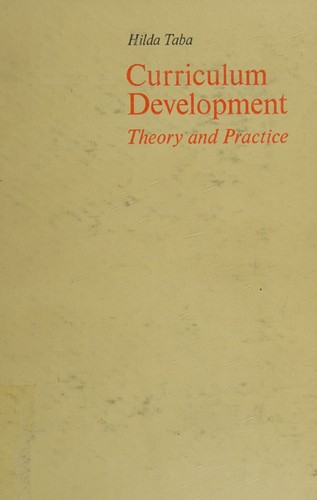Check nearby libraries
Buy this book

This work doesn't have a description yet. Can you add one?
Check nearby libraries
Buy this book

Previews available in: English
Subjects
Curriculum planning, Education, Curricula, Curriculum, Programmes d'études, Planification, Curriculumentwicklung, LeerplanontwikkelingPeople
peoplePlaces
Addis AbabaTimes
2011| Edition | Availability |
|---|---|
|
1
Curriculum development; theory and practice.
1970, Harcourt, Brace & World
in English
0155167405 9780155167407
|
aaaa
|
| 2 |
zzzz
|
Book Details
Table of Contents
Part One. The Foundations for Curriculum Development
The Functions of Educational Objectives
Part Three. The Design of the Curriculum
Part Four. The Strategy of Curriculum Change
Edition Notes
Bibliography: p. 494-514.
Classifications
The Physical Object
Edition Identifiers
Work Identifiers
Community Reviews (0)
| July 12, 2022 | Edited by MARC Bot | import existing book |
| February 16, 2019 | Edited by MARC Bot | import existing book |
| December 5, 2011 | Edited by 213.55.89.117 | Edited without comment. |
| December 5, 2010 | Edited by Open Library Bot | Added subjects from MARC records. |
| December 10, 2009 | Created by WorkBot | add works page |









